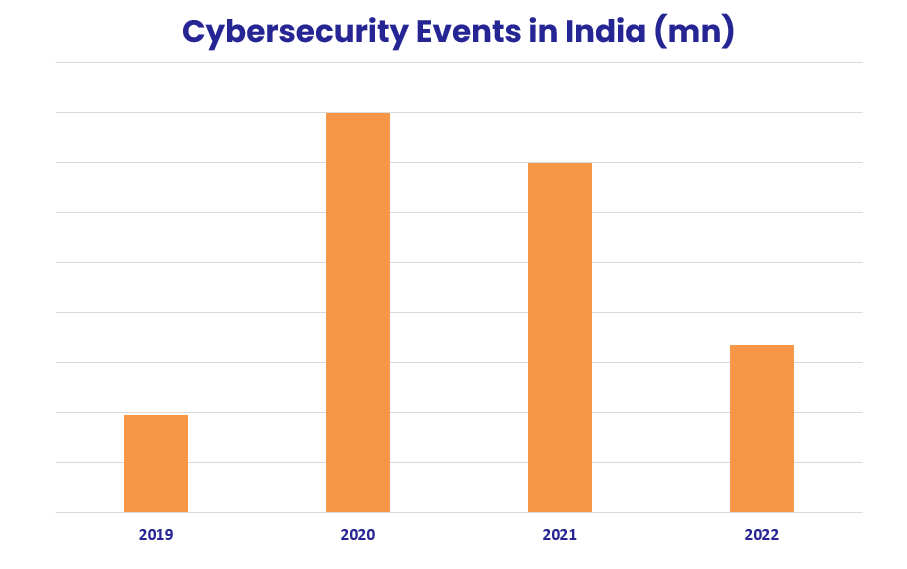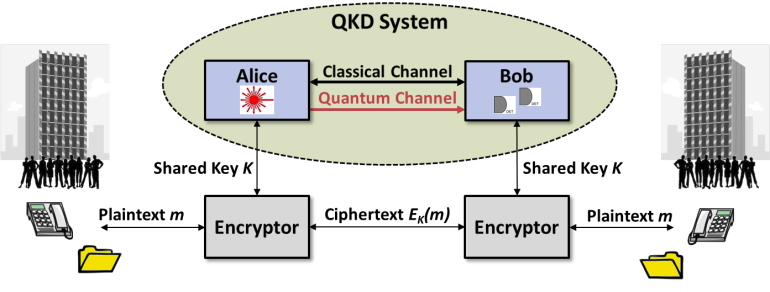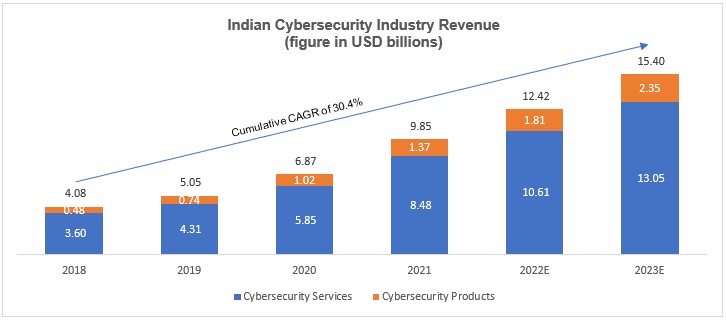Cybersecurity has transcended from a mere necessity to an imperative in the contemporary digital landscape. In 2022, India witnessed a staggering 13.91 Lakh cyber security incidents, underscoring the challenges faced by a nation with an increasing population of internet users. With the ubiquity of cyber threats topped up by high-profile attacks, the need for robust cybersecurity measures is more apparent than ever.
The global scenario is on a similar road, with cybercrime cost soaring to a mammoth $6 trillion in 2021 and projected to escalate to $10.5 trillion by 2025. Implementing strong cybersecurity measures can address the increasingly severe crisis of rampant cybercrimes. These measures have emerged as a backbone for individuals, Governments, corporations, not-for-profit organizations, and educational institutions. They all face a risk of cyberattacks and data breaches.
As digital technologies evolve, user and device numbers surge, global supply chains become complicated, and data assumes paramount importance in the digital economy. The frequency of attacks will escalate as well. The need for strong cybersecurity measures such as cryptography and quantum technologies becomes undeniable. It helps minimize the risk of attacks and secure systems and data.
Need for Cybersecurity
While transformative technologies like AI, 5G, and IoT provide enormous growth prospects for organizations, they concurrently expand the attack surface, giving rise to a wide range of cybersecurity dangers. The IT/ITES sector accounts for the most ransomware attacks, followed by the manufacturing and financial sectors. Critical sectors such as oil and gas, transportation, and power are next in the line of fire. Therefore, there is a need for niche cybersecurity technologies like cryptography and quantum technologies.
An Overview of Next-Gen Security Technologies
Let us take a look at some of the upcoming next-generation security technologies:
Cryptography:
The process of securing and encrypting data to ensure it can be accessed by the only individual in possession of the requisite secret key and can decrypt it is called Cryptography. It focuses on securing communication and information through various techniques and methods. Its primary objective is to ensure the confidentiality, integrity, and authenticity of data. This can be done even in the presence of adversaries who might attempt to intercept, alter, or misuse the information.
Quantum Technology:
This technology explores and utilizes the principles of quantum mechanics to develop new technologies with capabilities that surpass classical counterparts. Quantum technology operates at minor scales, such as atoms and subatomic particles. It describes the unique properties of quantum systems to create devices and applications that offer novel advantages. These can be realized in various domains, including computing, communication, sensing, and cryptography.
Quantum Cryptography:
This is different from traditional cryptography in that it uses the principles of quantum mechanics to secure and transmit data so that it cannot be hacked. The Quantum key distribution technique aims to provide information security that establishes a theoretically unbreakable cryptographic key between two parties, making any interception attempts detectable by the parties involved.
Protocols offered by Quantum Computing
The two main protocols followed in Quantum Computing are:
Quantum key distribution (QKD):
It is one of the most well-known applications of quantum cryptography. It enables two parties to establish a secret and secure cryptographic key over a channel. These two parties are generally referred to as Alice and Bob, and the key is generated using qubits. An attempt to intercept the qubits will cause a disturbance that can easily be detected.
Quantum Secure Direct Communication (QSDC):
It directly transmits encrypted information without establishing a secret key. The sender can encode the message and send it to the receiver. It is impossible to intercept the message without being noticed by the sender and receiver.
Government Initiatives to Tackle Cybercrimes
The Indian cyber-crime Coordination Centre (I4C), under the Ministry of Home Affairs, spearheads efforts to combat all types of cybercrimes and engages in Research and development activities to develop new technologies to counter cyberattacks.
Additionally, the Cyber Swachhta Kendra (Botnet cleaning and malware analysis center) is an initiative by the Ministry of Electronics and Information Technology (MeitY) to create a secure cyber ecosystem in the country.
India's Performance on the Global Stage
On the global stage, India occupies the 17th position among the world’s 20 most significant digital economies in an annual comparative ranking. This assessment evaluates their preparation against, and response and recovery from, cybersecurity threats. It also aims to determine how these economies use technology, digital practices, and cybersecurity to prevent hacks and cyberattacks and how the Government supports secure digital transactions.
Indian Government's Focus on Quantum Computing
Secure communication and encryption: By developing a quantum communication system and quantum key distribution (QKD), India can revolutionize its secure communication by developing a new way of transmitting data. Encrypting the data through quantum mechanics makes it impossible to intercept and decipher.
Military applications: Quantum sensing and imaging can enhance surveillance capabilities. Quantum navigation systems could replace satellite-based systems like GPS to provide accurate locations.
Securing financial transactions and tax data: Governments handle significant financial data, transactions, and tax payments. Quantum cryptography can enhance the security of financial systems. It will help to eliminate the risk of financial fraud in the country.
India to adopt Quantum safe Cryptography:
Quantum computing’s rapid maturation underscores its potential to address complex problems in research and industry, revolutionizing sectors such as pharmaceuticals and finance. It is essential to ensure that the computing workflow can protect future systems. This imperative is particularly critical for the Government and heavily regulated industries such as healthcare, telecom, and financial services.
According to IBM’s 2022 “Cost of a Data Breach” report, a staggering 83% of organizations worldwide have experienced more than one data breach in their lifetime. In the Indian context, Organizations reported an average of 29,500 breaches between March 2021 and March 2022. Government and private institutions holding sensitive data must immediately start implementing quantum-safe protocols.
The synthesis of cryptography and quantum technologies emerges as the vanguard in safeguarding our digital future. As the cyber threat landscape continues to evolve, embracing cutting-edge solutions becomes not just advisable but necessary for securing our digital domains.

Product Engineering Services Customized software development services for diverse domains
Sustenance Engineering Going beyond maintenance to prolong life of mature products
Managed Services Achieve scalability, operational efficiency and business continuity
Technology Consulting & Architecture Leverage the extensive knowledge of our Domain Experts






